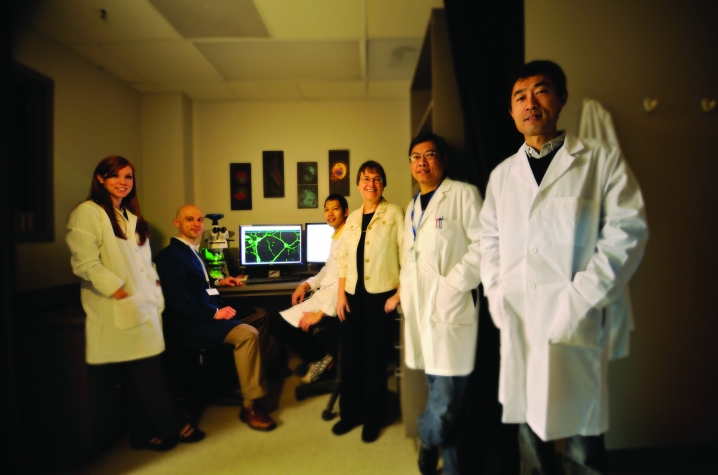$1.6 Million Grant Looks at Role of Key Protein following Traumatic Brain Injury

LEXINGTON, Ky. (June 24, 2015) — Linda Van Eldik, Ph.D., director of the Sanders-Brown Center on Aging at the University of Kentucky, has received a $1.6 million grant to study the role of a key protein in the cascade of events following traumatic brain injury (TBI).
The five-year grant from the National Institute of Neurological Disorders and Stroke (NINDS) explores the role of a protein called p38a in the inflammatory response process post-brain injury in a mouse model of mild TBI. The research will also determine the potential for a small molecule inhibitor of p38a activity to suppress the inflammation, and thereby prevent neuron degeneration and the resulting behavioral impairments caused by brain injury.
"In the research community, abnormal inflammation is being targeted as a potential 'bad guy' for a host of diseases, including Alzheimer’s disease and stroke and brain injury is on that list," Van Eldik said.
Increasing evidence points to chronic, long-lasting inflammatory responses in the brain after TBI as a contributor to neurological damage and cognitive deficits, she said.
"If the p38a inhibitor is proven to interfere with the process by which inflammation damages the brain after injury, we will have a foundation for future development of treatments that might stop or even reverse cognitive impairment," she said.
Traumatic brain injury represents a major unmet medical need, as currently no effective therapy exists to prevent the increased risk of dementia and other neurologic complications, such as post-traumatic epilepsy, neuropsychiatric disorders, and postconcussive symptoms such as headaches, sleep disturbance, memory problems, dizziness, and irritability.
"Successful completion of these studies will help us define when, where and how the important inflammatory protein p38a can be targeted to disrupt the process by which inflammation contributes to brain damage after injury," Van Eldik said. "The potential implications are enormous for patients with head injury due to car accidents, battlefield injury, the football field, or the many other situations where TBI is a highly possible outcome."
Media Contact: Laura Dawahare, laura.dawahare@uky.edu




